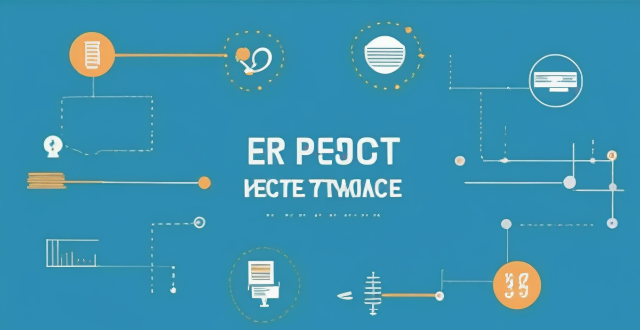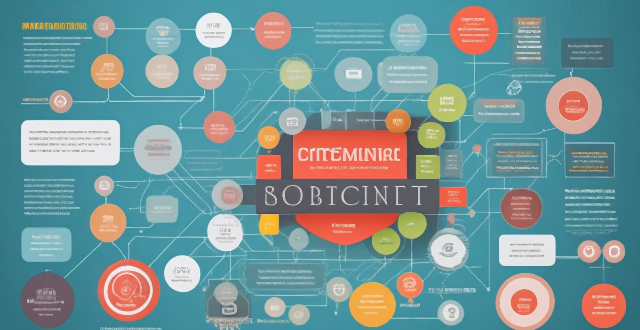Contract Legal

What is a smart contract ?
Smart contracts are self-executing contracts with the terms of the agreement between buyer and seller being directly written into lines of code, which exist across a distributed, decentralized blockchain network. They allow for transactions and the transfer or distribution of cryptocurrencies to be executed automatically without the need for a central authority, legal system, or external enforcement mechanism. Smart contracts are autonomous, immutable, traceable, and decentralized. They have various use cases such as cryptocurrency transactions, insurance claims, supply chain management, real estate transactions, gambling and betting, and legal documents. The benefits of smart contracts include efficiency, transparency, security, speed, and accuracy. However, there are challenges and considerations such as code quality, lack of legal recognition, interoperability issues, and privacy concerns.

What are the legal implications of using smart contracts ?
Smart contracts, self-executing contracts with terms written in code on a blockchain, raise legal questions about enforceability, jurisdiction, privacy, security, and regulatory compliance. Best practices include consulting a legal expert, clearly defining terms, considering jurisdiction, and prioritizing privacy and security.

What is the difference between a regular contract and a smart contract ?
A regular contract and a smart contract differ in terms of their **nature**, **enforceability**, **cost**, **speed**, and **transparency**. Below are the key differences between these two types of contracts: ## Nature ### Regular Contract - Legal agreement between two or more parties. - Typically written in natural language (e.g., English). - Governed by local laws and regulations. ### Smart Contract - Self-executing contract with the terms directly written into code. - Deployed on a blockchain network. - Enforced by the underlying code and cryptographic protocols. ## Enforceability ### Regular Contract - Relies on legal institutions for enforcement (e.g., courts). - May involve mediation or arbitration processes. - Penalties for breach can be monetary or involve other forms of relief. ### Smart Contract - Autonomously executes when predetermined conditions are met. - Enforcement is decentralized and automated. - Penalties for breach are typically programmed into the contract logic. ## Cost ### Regular Contract - Can be costly due to legal fees, notary services, and potential litigation expenses. - Involves overhead of paper-based record keeping and manual processing. ### Smart Contract - Generally less expensive because it eliminates intermediaries. - Costs associated with blockchain transaction fees and contract deployment. ## Speed ### Regular Contract - Time-consuming process from negotiation to signing and execution. - Settlement times can vary widely depending on the complexity of the agreement. ### Smart Contract - Faster execution once the conditions are met. - Real-time settlements possible due to automation. ## Transparency ### Regular Contract - Limited transparency; only involved parties have access to the contract details. - Requires trust in the counterparty to disclose all relevant information. ### Smart Contract - High transparency; contract code and transactions are visible on the blockchain. - Trust is placed in the immutable and verifiable nature of the blockchain.

What are smart contracts in the context of blockchain ?
Smart contracts are self-executing digital agreements that operate within the blockchain, providing a decentralized and trustless system for transactions. They are created using specific programming languages and deployed onto a blockchain platform. Once conditions are met, smart contracts execute automatically, with each node verifying the process to ensure accuracy. Applications include cryptocurrencies, supply chain management, real estate, insurance, and legal agreements. However, challenges like immutability, complexity, legal standing, and privacy concerns must be addressed.

What are the legal aspects to consider in credit management ?
Credit management involves various legal considerations, including contract law, consumer protection laws, privacy laws, bankruptcy laws, state and federal laws, and collections practices. Businesses must ensure that their contracts are legally binding, disclose all relevant information about their credit products, protect customer data, understand bankruptcy laws, comply with usury laws and licensing requirements, and adhere to the Fair Debt Collection Practices Act. By considering these legal factors, businesses can maintain strong relationships with their customers while minimizing financial risks.

What legal considerations should fans be aware of when planning a support event for an artist ?
When organizing a support event for an artist, fansWhen organizing a support event for an artist, fans avoid infringement of fans must consider legal aspects to avoid infringement of rights and unintended issues. Key considerations include intellectual property rights such as music copyright and trademarks; public performance licenses; venue agreements; necessary permits and regulations; privacy and consent; liability and insurance; transparent promotion and marketing; and clear ticketing policies. Consulting with legal professionals is recommended to ensure all aspects are legally sound.

What are the potential risks associated with smart contracts ?
Smart contracts revolutionize digital transactions but pose risks like code vulnerabilities, legal uncertainties, lack of human oversight, interoperability issues, and privacy concerns. Users must understand these potential pitfalls before engaging in smart contract agreements to mitigate adverse outcomes.

How do smart contracts work ?
Smart contracts are self-executing contracts with the terms directly written into code, operating on a decentralized blockchain network. Key features include autonomy, trustless transactions, immutability, and traceability. The working mechanism involves deployment, execution based on predefined conditions, verification through consensus algorithms, and settlement updating contract states. Benefits encompass efficiency, transparency, security, and the removal of intermediaries. Challenges include legal recognition, coding errors, and handling complex logic. Smart contracts revolutionize traditional contract law by enabling secure, automated, and transparent transactions on blockchain networks.

How can schools address the issue of contract cheating, where students pay others to complete their assignments or exams ?
Addressing contract cheating in schools is crucial for maintaining academic integrity. Effective measures include using advanced plagiarism detection tools, educating students on academic integrity, encouraging open discussions, providing support services, and collaborating with parents and guardians. These strategies can deter students from engaging in contract cheating and promote a culture of original work.

What are the benefits of hiring a sports agent for career management ?
Hiring a sports agent can bring numerous benefits to an athlete's career management, including negotiating contracts and deals, marketing and branding assistance, legal representation, and career planning and development. By working with an experienced sports agent, athletes can focus on their performance while leaving the business side of their careers in capable hands.

What are the potential risks associated with sports sponsorship and how can they be mitigated ?
Sports sponsorship is a popular marketing strategy used by companies to promote their brand, products, or services. However, there are potential risks associated with sports sponsorship that need to be considered and mitigated. These risks include reputational risk, financial risk, and legal risk. To mitigate these risks, companies should conduct thorough research on the athlete/team before signing a sponsorship deal, ensure alignment between the sponsor's values and those of the sponsored entity, set clear budgets for sponsorship activities, monitor the performance of the sponsored entity, negotiate flexible contract terms, and work with legal experts to ensure compliance with all relevant laws and regulations. By managing these risks, companies can maximize the benefits of their sports sponsorship investments.

Can smart contracts be used in traditional businesses ?
Smart contracts, self-executing contracts with terms written into code, can be used in traditional businesses but have limitations such as legal issues and complexity. They offer advantages like transparency, efficiency, and security but also present challenges like lack of human touch and privacy concerns. Businesses should carefully consider their specific needs before adopting this technology.

Are there any hidden fees or contracts associated with upgrading my broadband ?
When upgrading broadband, beware of early termination fees, equipment rental costs, and installation charges. Also, understand contract minimums and auto-renewal clauses before committing.

How do women entrepreneurs navigate the legal aspects of starting a business ?
Starting a business as a female entrepreneur involves navigating various legal considerations. This guide offers strategies for handling these aspects, including understanding legal frameworks, protecting intellectual property through trademarks and copyrights, drafting contracts, complying with employment laws, ensuring financial compliance, and managing risks with insurance. By addressing these components systematically, women entrepreneurs can establish a solid foundation for their businesses while minimizing legal risks and ensuring smooth operations.

What legal resources are available for women who face discrimination or abuse ?
This text provides a summary of legal resources available to women who are facing discrimination or abuse. It outlines various government agencies that enforce laws related to gender-based discrimination and violence, non-governmental organizations that offer support and information, legal aid organizations that provide free or low-cost legal services, and online resources that offer legal information and self-help guides. The text emphasizes the importance of seeking help from these sources if one is experiencing any form of mistreatment or inequality based on their gender.

Can women serve on juries and hold positions of power within the legal system ?
The role of women in the legal system has evolved significantly over time. Women are now allowed and encouraged to serve on juries, bringing diversity of perspectives, increased trustworthiness, and improved decision-making. However, women still face challenges in achieving parity with men in holding positions of power within the legal system. Efforts such as affirmative action programs, mentorship programs, and flexible work arrangements have been implemented to address these issues.

What are the legal requirements for providing PPE to employees ?
Personal Protective Equipment (PPE) is essential in ensuring the safety and health of employees in various industries. Employers have a legal obligation to provide their employees with appropriate PPE, which must comply with specific regulations and standards set by organizations such as OSHA, the EU, Safe Work Australia, and CSA. Employers must conduct a hazard assessment, select appropriate PPE, ensure proper fit and comfort, provide training and education, and establish a system for maintaining and replacing PPE. By fulfilling these legal requirements, employers can help protect their employees from workplace hazards and promote a safe working environment.

How does the European Union approach climate change through its legal frameworks ?
The European Union has been at the forefront of addressing climate change through its legal frameworks. It has adopted a comprehensive and integrated approach that includes legislation, regulations, directives, and other legal instruments to mitigate greenhouse gas emissions and adapt to the impacts of climate change. This approach is based on the principles of sustainable development, prevention, polluter pays, and subsidiarity. Some key legal frameworks for climate change in the EU include the European Climate Change Programme, Emissions Trading System, Renewable Energy Directive, Energy Efficiency Directive, and Climate Action and Resilience Package. The implementation and enforcement of these legal frameworks are ensured through monitoring and reporting, evaluation and review, and enforcement actions. Despite facing challenges such as political will, technological innovation, and international cooperation, there are also opportunities for the EU to further strengthen its approach to climate change through legal frameworks by exploring innovative financing mechanisms, collaborative governance, and global leadership.

Are there any legal requirements for installing a burglar alarm system ?
Legal Requirements for Installing a Burglar Alarm System Security is an essential aspect of modern life, and installing a burglar alarm system can significantly enhance the safety of homes and businesses. However, there are legal requirements that must be met before installing such systems. This article discusses the legal requirements for installing a burglar alarm system, including obtaining permits and licenses, checking insurance requirements, and adhering to local regulations and ordinances. By complying with these requirements, you can ensure that your burglar alarm system provides effective security while meeting all legal obligations.

Are there any legal requirements for installing a home security system ?
Home security systems are becoming increasingly popular as homeowners seek to protect their property and loved ones from potential threats. However, before installing a home security system, it is important to understand the legal requirements that may apply in your area. In this article, we will explore some of the key legal considerations when installing a home security system. Local ordinances and regulations, privacy laws, insurance requirements, and maintenance and upkeep are all important factors to consider when installing a home security system. By understanding these legal considerations, you can make informed decisions about protecting your property and loved ones while staying within the bounds of the law.

What are the legal frameworks and policies supporting the establishment of ecological protection areas ?
The establishment of ecological protection areas is supported by various legal frameworks and policies that aim to conserve biodiversity, protect ecosystems, and promote sustainable development. These frameworks and policies are essential for ensuring the effective management and protection of ecological protection areas. Some key legal frameworks and policies supporting the establishment of ecological protection areas include international legal frameworks such as the Convention on Biological Diversity (CBD) and the United Nations Convention to Combat Desertification (UNCCD), national legal frameworks such as National Biodiversity Strategies and Action Plans (NBSAPs) and national environmental policies, regional legal frameworks such as regional conservation agreements, and sector-specific legal frameworks such as forestry laws and regulations and wildlife conservation laws and regulations. When establishing ecological protection areas, it is essential to follow best practices such as conducting thorough scientific research, engaging local communities in the planning and management process, developing clear management plans, monitoring ecological protection areas regularly, and promoting sustainable tourism activities within them.

What are the legal implications of managing digital identities ?
Managing digital identities raises various legal implications including privacy laws, intellectual property rights, liability for misuse or breach, and compliance with industry standards. To ensure compliance, organizations must implement technical and organizational measures to safeguard personal information, obtain necessary permissions for proprietary information, mitigate liability risks through robust security policies, and adhere to identity management best practices.

What are the legal implications of failing to meet climate targets set by international agreements ?
Failing to meet climate targets set by international agreements can have significant legal implications, including liability for damages caused by climate change, violation of international law, and domestic legal consequences. These implications can vary depending on the specific agreement and jurisdiction in question, but some common consequences include public and private claims for damages, trade sanctions, loss of funding or aid, international dispute resolution, regulatory compliance, shareholder pressure, and reputational risk.

What are the legal and policy frameworks for water resource management at the national and international levels ?
Water resource management is a critical issue that affects the sustainability of ecosystems, the economy, and human well-being. To address this challenge, various legal and policy frameworks have been established at both national and international levels. At the national level, water resource management is governed by a combination of laws, regulations, and policies aimed at ensuring equitable access to water resources, protecting the environment, and promoting sustainable development. International legal and policy frameworks play a crucial role in addressing transboundary water issues and promoting global cooperation on water resource management. Effective water resource management requires a comprehensive approach that encompasses both national and international legal and policy frameworks.

How can smart contracts be used to streamline financial transactions ?
Smart contracts can streamline financial transactions by automating processes, reducing costs, and increasing efficiency. They can automate payments and transfers, act as escrow services, create loan agreements, streamline insurance claims, and facilitate trading and exchanges of financial assets. As blockchain technology evolves, we can expect more innovative uses for smart contracts in the financial industry.

Can I make changes to my estate plan without a lawyer ?
Making changes to an estate plan without a lawyer is possible but risky, as it can invalidate the plan or lead to unintended consequences. Simple updates like changing a beneficiary or using online will services might be manageable without legal help. However, understanding legal requirements, document formalities, and potential risks are crucial. Periodic reviews and seeking professional advice for complex situations or peace of mind are recommended.

What are the potential consequences of communication breaches in business environments ?
Communication is crucial in any business setting, but communication breaches can have severe consequences. These can include a lack of trust, decreased productivity, negative impact on customer satisfaction, and legal consequences. Misinterpretation of information, reduced collaboration, time wasted on misunderstandings, lower employee morale, inconsistent messages to customers, delayed response times, breach of contract, and non-compliance with regulations are all potential outcomes of communication breaches. It is essential for businesses to prioritize effective communication practices to avoid these issues.

Is cryptocurrency legal in all countries ?
The legality of cryptocurrency varies across countries, withThe legality of cryptocurrency varies across countries, with it and others banning or The United States, Japan, and El Salvador are examples of countries where cryptocurrency is legal and regulated. In contrast, Algeria, Egypt, and Nepal have outright banned it due to concerns over financial stability and potential misuse in illegal activities. China, India, and Russia have imposed restrictions on its use but have not completely prohibited it. It is crucial to understand local laws and regulations before engaging in any cryptocurrency-related activities.